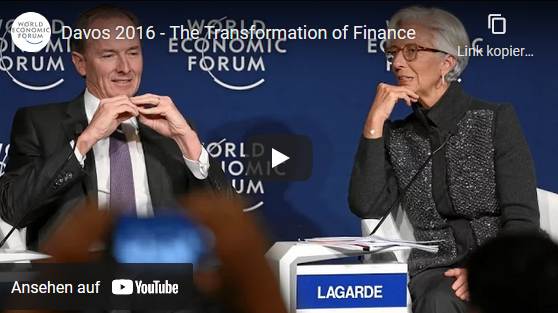Hakon von Holst. When Edward Snowden left America, he paid for his flight to Hong Kong with cash. With a credit card, the escape might have failed. The world would never have known about him. Even in his Russian exile, Snowden only uses bills and coins. Today, the whistleblower warns firmly against digital state currencies – and at the same time against the abolition of cash.
At the end of his NSA-career, Snowden worked on the Hawaiian island of Oahu. Snowden held a privileged position: it is estimated that only a few dozen people worldwide had such far-reaching insight into the structures and doings of perhaps the most advanced government intelligence agency in the world.
Over several years, Snowden had studied the U.S. government’s system of surveillance, in all its facets. He learned, for example, the NSA was collecting the communications data of every citizen on earth it could get its hands on.
At the computers in the main headquarters in Maryland, one only had to type in a name to learn everything about a target person: every e-mail, every phone call, every entry in social networks, every text message … In some cases, it was even possible to play back recordings of Internet sessions as if the victim’s screen had been captured on camera.
NSA employees could also be notified in real time about certain activities of selected people. This could be an engineer in Indonesia, but it could just as easily be a minister in Europe or a federal judge in America.
These are just some examples of the many insights Snowden wanted to share with the public. To be able to convey the complicated material to journalists, he had to prepare a meeting on neutral ground. Snowden wrote in his autobiography, „Permanent Record,“ published in 2019:
„The preparations I was making were those of a man about to die. I emptied my bank accounts, putting cash into an old steel ammo box for [my partner and love] Lindsay to find so that the government couldn’t seize it.“
Passing on a single secret document – and Edward Snowden wanted to pass on thousands – was punishable by up to 10 years in prison in the USA. And in addition, there was and still is the death penalty.
Escape payed in cash
Before Snowden set out, he reported a medical emergency to the NSA. He claimed to have suffered an epileptic seizure. To his girlfriend Lindsay Mills, however, he left his smartphone and a note:
„Got called away for work. I love you.“
He left the house with four laptops in his luggage, a special antenna and a Rubik’s cube:
„Then I went to the airport and bought a ticket in cash for the next flight to Tokyo. In Tokyo, I bought another ticket in cash, and on May 20 arrived in Hong Kong, the city where the world first met me.“
If Snowden had had to pay by credit card, or by smartphone, he would very likely have been stopped and searched in Tokyo. And he would have been arrested when his suspicious luggage would have been found. This shows the dangers of the trend toward a cashless world.
There is no need for a government-imposed ban on cash; it is already enough if private companies such as airlines begin to exclude cash as a means of payment. Even if tickets are increasingly purchased digitally, this is making a cash payment a suspicious possibly reportable act.
Soon after „The Guardian“ published Glenn Greenwald’s first report on June 5, 2013, Snowden’s whereabouts in Hong Kong became known. Countless members of the press crowded outside his hotel. Human rights lawyer Robert Tibbo smuggled Snowden out through a side exit to hide him in the sparse apartment of warm-hearted refugees. Here, too, cash was essential:
„[…] they shared everything they had with me, and they shared it unstintingly, refusing my offers to reimburse them for the cost of taking me in so vociferously that I had to hide money in the room to get them to accept it. […]. I will never be able to explain what it meant to be given so much by those with so little […].“
FBI going after Lindsay Mills
The reason for Snowden’s absence was revealed to his partner when his face appeared on every TV channel. She left her home town, where officials were turning her apartment upside down, and had moved in with a friend. Her mother, Eileen, was active in local politics and advised Lindsay on how to behave:
„We drove to the nearest branch and she had me withdraw all of my money immediately in case the feds froze my accounts.[…]. The bank manager asked me what I needed all that cash for and I said, ‘Life.‘“
If you shop with a card or cell phone you reveal your whereabouts, information about your lifestyle (evident from the timestamp of when payments were posted), your preferences (which stores you shopp at), whether you are frugal or spendthrift (amount of payments). Such metadata makes you predictable.
But it goes even further. If the receipt for the purchased goods is not written by hand or printed by an isolated POS system, the intelligence agency may also be able to track what exactly you bought. In the case of large retail chains, the products sold are certainly reported in real time to the head office so that, for example, reorders can be made in time.
See also: Here we go: The first government merges digital payment data and grocery store receipts
What can be found out about you if the NSA hacks in here is described succinctly by Snowden in his biography:
„[…] it wouldn’t take much for an interested government to find out that you’ve been reading this book. At the very least, it wouldn’t take much to find out that you have it, whether you downloaded it illegally or bought a hard copy online or purchased it at a brick-and-mortar store with a credit card.“
You can read all these interesting statements in Snowden’s autobiography „Permanent Record“. It is definitely worth your time to read. You can get the book for cash at any bookstore.
Snowden writes in his biography that he and his girlfriend already paid cash for everything in America. And how does he handle it in his Russian exile? He told the state television channel „France 24“ in 2019:
„I never use credit cards. […]. And of course while we know there is all of this agencies that are weighting these databases for details about our private lives and to me that starts to look like that’s not a good deal, instead I pay for things by cash.“
On Youtube you can hear Snowden’s voice yourself: https://www.youtube.com/watch?v=IrJtaWsNffY

The advent of digital currencies
The European Central Bank and the EU Commission are currently working on the introduction of a digital euro. And alongside them, the central banks of no fewer than 87 countries are also working on digital currencies.
Some small Caribbean islands have already introduced an electronic currency parallel to cash. Nigeria is so far the only large country, which has introduced a “central bank digital currency” (CBDC) accessible to all citizens. There, every merchant must accept payments in the new e-naira. Anyone with a smartphone and a cell phone number can use it, download an electronic wallet to their phone and pay with it.
However, if they value their privacy, Nigerians would have to think twice. This is because the path to the SIM card leads through the NIN registration center. The NIN is a national identification number. You can’t get a SIM card without it. A lot of data has to be disclosed in the application process. Prints of all ten fingers are required. Once the procedure has been completed, the e-naira can be used within the existing limits: A citizen is allowed to keep 300,000 NGN (approx. 675 EUR) in the electronic wallet. The daily transaction limit of NGN 50,000 (approx. EUR 110) applies. If that is not enough for you, the state will have to make even more far-reaching concessions beyond the NIN registration.
Nigeria was also the country that released a very modern identity card in 2014. The first government-issued ID document to flash the Mastercard symbol! Credit card included.
See also: No phone calls without biometric ID? World Bank guinea pig Nigeria shows what could soon come to you
Edward Snowden sees a great danger in such developments in the financial system. He sees the intention to displace cash, eventually replacing it and taking control of every penny in the world. He warns:
„Neither is a Central Bank Digital Currency a State-level embrace of cryptocurrency – at least not of cryptocurrency as pretty much everyone in the world who uses it currently understands it.Instead, a CBDC is something closer to being a perversion of cryptocurrency […] – a cryptofascist currency […], expressly designed to deny its users the basic ownership of their money and to install the State at the mediating center of every transaction.“
Edwardsnowden.substack.com
The state as mediator of EVERY transaction. The head of Deutsche Bank confirmed this goal when he said at the World Economic Forum in 2016:
„But we do worry about cash because I think that should be dematerialized. […]. And I think governments would be interested in that. […]. It would be better if everything would be traceable.“
On Youtube you can listen to John Cryan himself: https://www.youtube-nocookie.com/embed/JwkC8WaN5T4?rel=0&start=859

Christine Lagarde, then head of the International Monetary Fund (IMF), sat on the panel in which John Cryan said this. She agreed with Cryan’s prediction that cash would probably no longer exist in ten years. The IMF is an avid promoter of the move away from cash. And also a campaigner for the e-naira project. Many countries, including Nigeria, are in debt to the International Monetary Fund and to the World Bank, which gives them a lot of leverage over them.
Christine Lagarde advocated the adoption of digital currencies at the 2018 Fintech Festival in Singapore. Lagarde was very critical of cash’s characteristic of being under the full control of its users and protecting their anonymity. She said:
„Would central banks jump to the rescue and offer a fully anonymous digital currency? Certainly not. Doing so would be a bonanza for criminals.“
It it went her way, Edward Snowden would be left out in the cold. No escape for whistleblowers. No one would learn about the crimes of the government or comparable entities in the brave new world of Christine Lagarde. Thus, there should never be a ban on cash. The choice to pay in cash needs to be preserved.
Your help is needed in this:
- Be informed of what is going on and make other people aware of it.
- If possible, pay cash for every purchase and invite other people to do the same.
